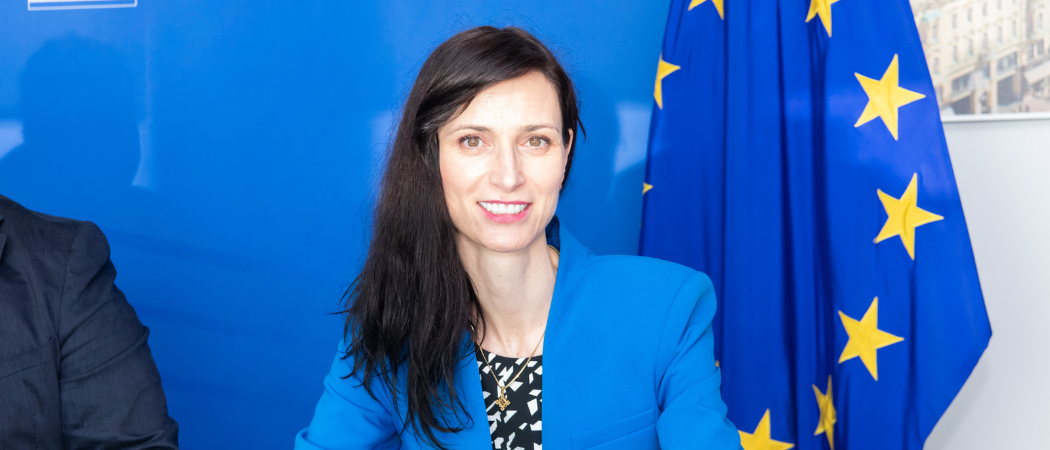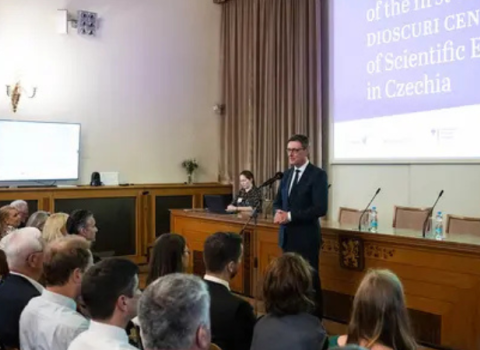As Mariya Gabriel prepares to take up rotating role of prime minister of Bulgaria in March, she says measures aimed at closing Europe’s research and innovation gap are a ‘powerful tool’

Soon-to-be Bulgarian prime minister and former EU research commissioner Mariya Gabriel. Photo: Aurore Martignoni / European Union
Bulgaria’s soon-to-be prime minister and former European research commissioner Mariya Gabriel has spoken in favour of Horizon Europe’s Widening measures at the Science|Business annual conference celebrating 40 years of the Framework research programmes.
Gabriel praised the impact Widening measures have had in closing the longstanding research performance gap between western and eastern states. While bridging the gap remains a huge challenge, “it is up to us to help Widening countries reach their potential,” she told the conference earlier this month.
This is particularly important given the current geopolitical context, with Europe lagging behind the US, China and other global competitors in terms of innovation, Gabriel said. “We have more than ever to look at our competitiveness and that’s why we need to have everyone on board.”
Gabriel stepped down as research commissioner in May last year to help try to form a new coalition government in Bulgaria and end a long-lasting political stalemate that had seen five elections take place in two years. She is currently deputy prime minister and foreign secretary, but under the terms of the coalition agreement is due to replace prime minister Nikolay Denkov, a scientist and member of the Academy of Sciences, in March.
Gabriel’s comments come at a time when Widening measures are being called into question with a recent Danish paper on the next framework programme, FP10, due to begin in 2028, calling for Widening measures to be funded through a separate scheme, such as EU structural funds.
This follows background talk among member states for the measures to be reorientated to benefit regions all over Europe that are lagging behind in research and innovation. Marc Lemaître, European Commission director general for research and innovation, said in June last year that Widening needs to be rethought, so changes for FP10 are likely.
But Gabriel said the measures are a “powerful tool” helping countries catch up. Excellence can be found anywhere and Widening helps to realise this potential. She gave the example of Hungarian-American biochemist Katalin Karikó who won a Nobel Prize last year for her groundbreaking work on messenger RNA, the technology behind mRNA COVID-19 vaccines. (The research for which Karikó won was carried out in the US, at the University of Pennsylvania, with her fellow prize winner Drew Weissman).
“Katalin is an example of persistence and capacity to endure to pursue something she strongly believes in,” Gabriel said. “Research and innovation talent is everywhere and we don’t know from whom or where the next disruptive science will come.”
Speaking of matters closer to home, Gabriel said she believes Bulgaria can become a regional innovation hub and a centre of technology excellence. But for this to happen, “there has to be investment.” This is easier said than done but the country is laying plans, Gabriel said.
Her ambition is for Bulgaria to become a moderate innovator on the European Innovation Scoreboard, where it is currently ranked as an emerging innovator.
Gabriel also supports the ambition of member states putting at least 3% of GDP into research, but says there is a long way to go. “The goal of 3% is very good but let’s not forget where some countries are starting from,” she said. Bulgaria currently spends 0.77% of its GDP on research, significantly lower than the 2.22% EU average.
Part of Bulgaria’s problem, Gabriel said, is a lack of connection between ministries and stakeholders. In December, the country introduced a new law on the promotion of scientific research and innovation that aims to fill gaps in the regulatory framework and to strengthen links between universities and industry.
“There is a full awareness in Bulgaria that research and innovation has a huge potential to benefit Bulgarian society and boost economic development,” Gabriel said. “But only with joint forces will we be able to establish Bulgaria and Europe as an attractive destination.”





 A unique international forum for public research organisations and companies to connect their external engagement with strategic interests around their R&D system.
A unique international forum for public research organisations and companies to connect their external engagement with strategic interests around their R&D system.